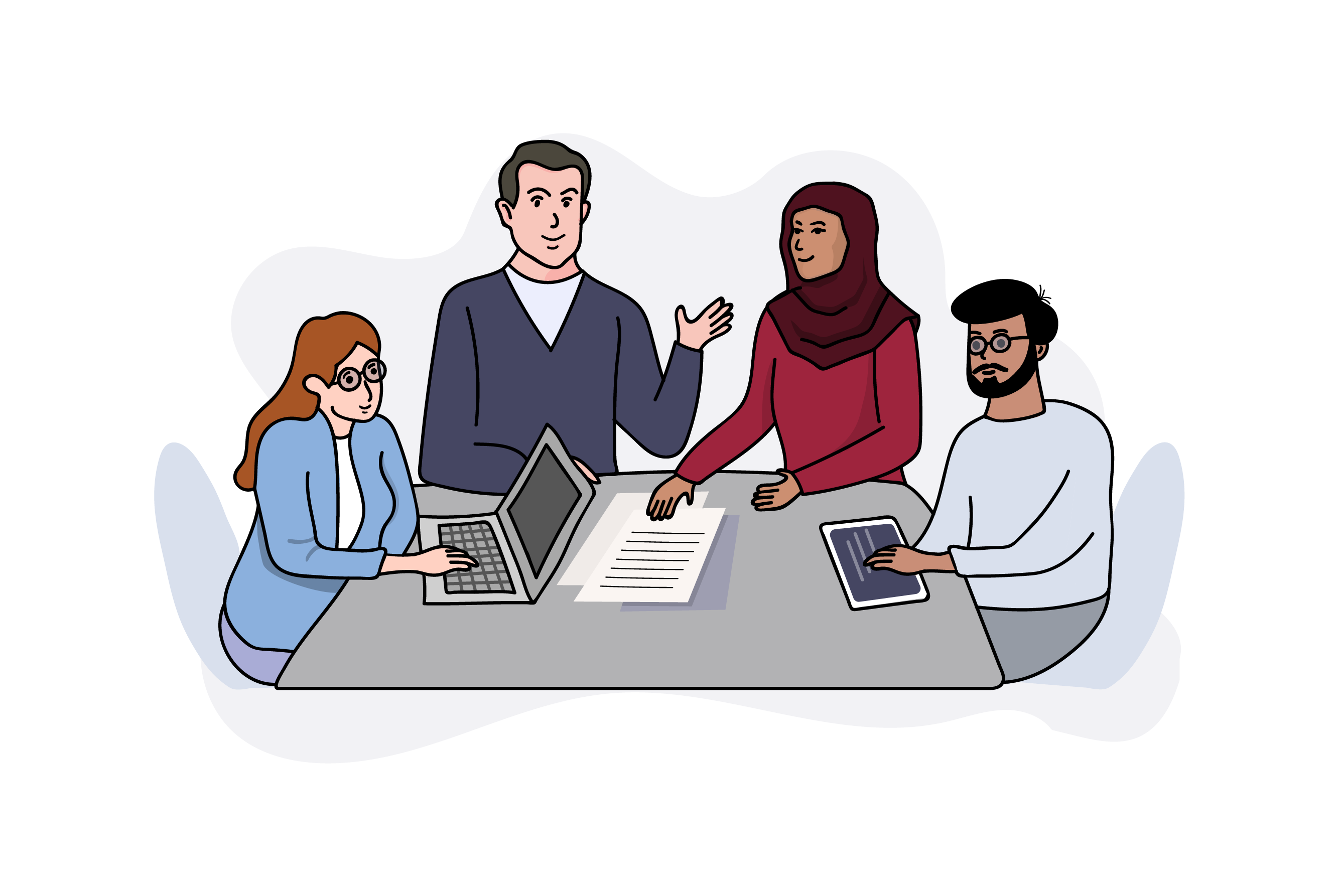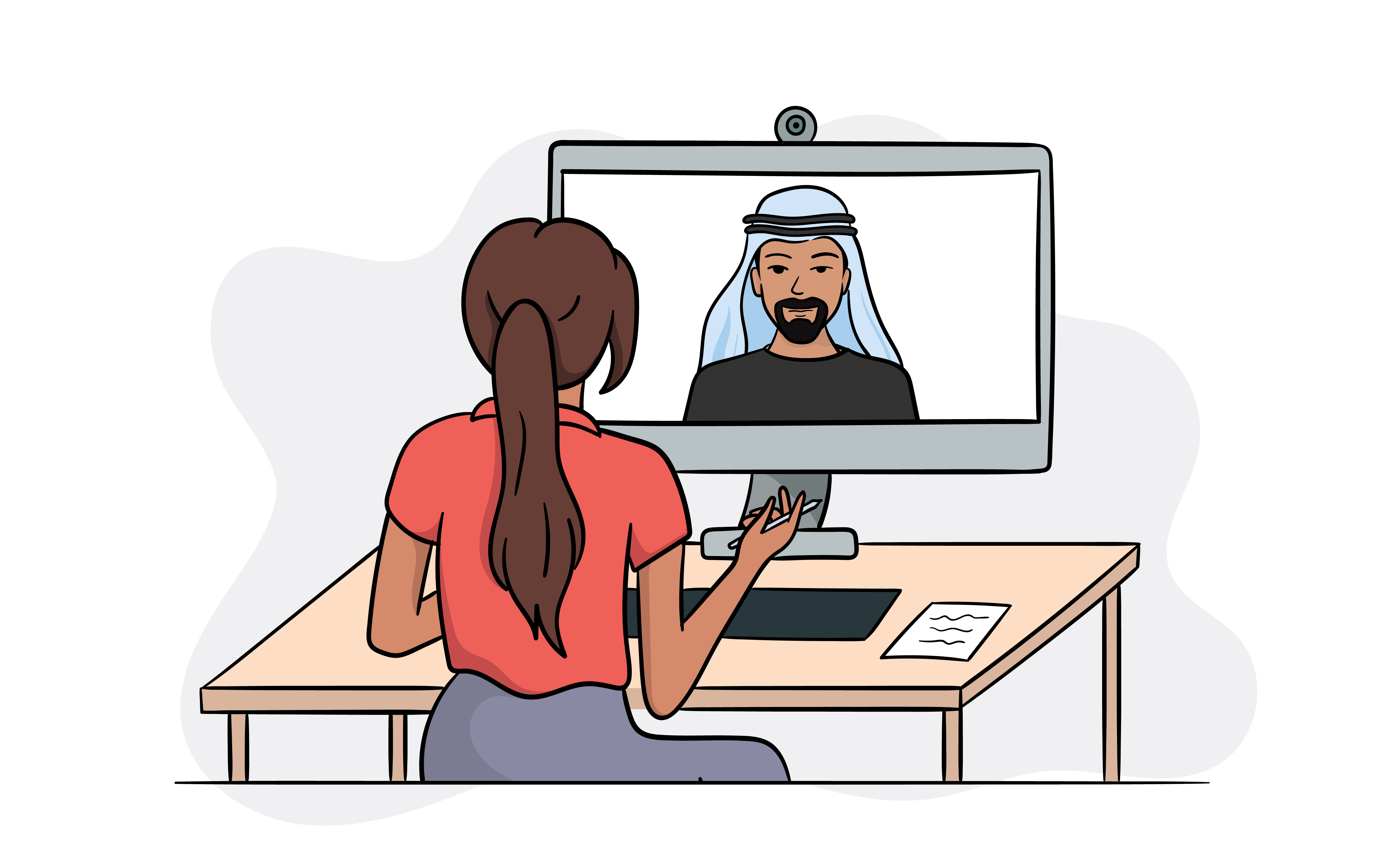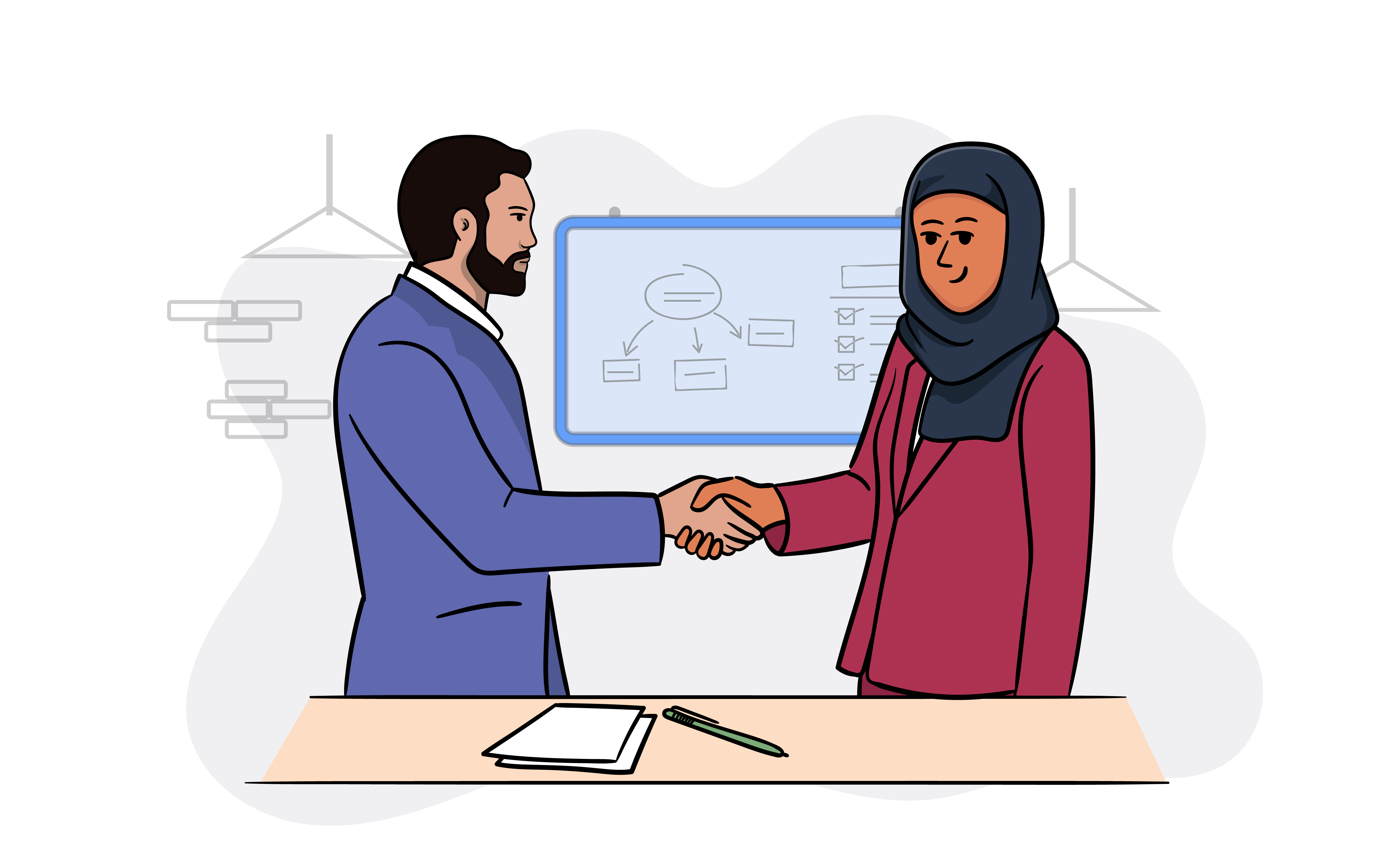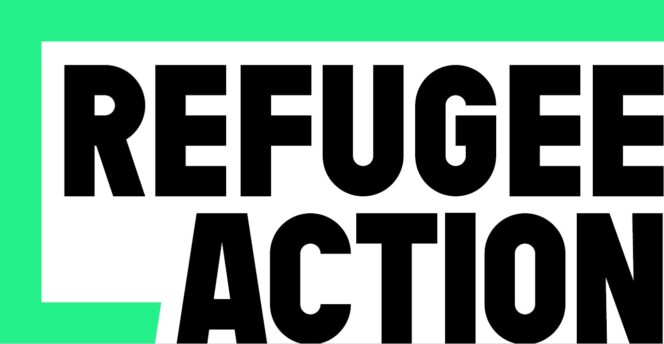In conversation | What job hunting looks like for a refugee and how a mentor can help
In this blog, Andy, a participant in Refugee Action’s Pathways to Work programme, speaks to his mentor, Ross, about what they’ve learned from each other through the programme and how to go about job hunting in the UK.
Meet Andy. Back home in Asia he worked in finance and as an economist, with years of experience and an impressive CV. Tensions became a crisis in his home country and he fled to seek asylum in the UK. He’s lived here since 2021. After 400 job applications but no job prospects on the horizon, he decided to join Refugee Action’s Pathways to Work programme.
In comes Ross, an IT consultant in his early 30s who has always been conscious of the difficulties faced by asylum seekers and wanted to do something to help. He started mentoring Andy. Together they look back at what they’ve learned from each other, and reflect on their different cultures and how to go about job hunting in the UK.
Why did you join the Refugee Action Pathways to Work programme?
Andy: The success rate of my job interviews was very low. I guess less than 10 replies. That's why I needed to join a programme to improve the situation. It was, in a way, an introduction to job hunting, job interview techniques, and an introduction to the job culture in the UK.
Ross: I have helped people with CV building, and career building. So, I thought maybe I might be able to support someone.

Has the programme shaped your view on what support is needed for someone new to the UK?
Ross: There were a number of technical things I didn't understand about the UK Government policy before this programme. I didn't know that someone who is seeking asylum is not able to work until they have their asylum granted. That's something that surprised me in a way because it goes against how I understood things should be. I think there are probably systems that could be improved for someone who is trying to compete in the UK market... It is pretty difficult. I think there could be better systems in place where the UK provides more clarity for people specifically coming from these backgrounds. For example, Andy has expertise in being an economist with an incredible amount of experience. I found that it's quite hard to specifically find the right role for him because of his native language and the experience he's had. So, you end up looking at job boards that everyone else is looking at. I believe the UK Government should invest in employment opportunities for asylum seekers, as it's not only about their arrival in the country but also about enabling them to build enjoyable lives.
Andy: As a new immigrant to the UK, the first support needed is the language skills. I have tried a few language lessons. I find it quite difficult to communicate during the interviews, or to communicate effectively in my daily life, let them know what I am expressing and to know what they're expressing. This is where I find difficulties. Attending English classes is going to help to handle this.
As a new immigrant to the UK, the first support needed is the language skills...I find it quite difficult to communicate during the interviews, or to communicate effectively in my daily life... Attending English classes is going to help to handle this.
Another obstacle is that I don't have work-related local experience. I have tried to look for some junior roles or some voluntary roles. This failed because my previous role was more specific than the voluntary ones. Recruiters of junior roles commented that I was overqualified. They expect that I will apply for jobs that need more experience. I have applied for roles that are less skilled or unskilled and they wondered whether they should employ me.
The other obstacle is to understand the job culture. It was quite useful when I attended the Pathways to Work programme. They told me about the job requirements, what employers are looking for in a CV, and what they are looking for in interviews and cover letters. This is the most useful part of this programme and what I need to improve during my job hunting.

Can you provide examples about something that the programme has helped you to achieve or understand?
Andy: My CV has improved. I have closed the gap between the employer's expectations and my presentation to them. I feel that the CV is more eye-catching to the interviewers, and I have just applied for a few jobs, and I have got one interview already. After Ross helped with my CV then I discovered that there's a cultural difference in the working environment between the UK and Asia. In Asia, we try to be very humble, and very low profile. I know now I have to pinpoint to my strengths.
...there's a cultural difference in the working environment between the UK and Asia. In Asia, we try to be very humble, and very low profile. I know now I have to pinpoint to my strengths.
Ross: If I can add, yes, I think for me, it was an interesting cultural difference. In the UK, it's a cultural thing where being proud of your achievements and stating what you've achieved is quite important and it's not necessarily arrogance. In British culture, I think competitiveness is part of how you have to try and get ahead, but I think there is a lot more about being humble in Asia.
If you had a magic wand or if you could change something, is there anything that you would do to support refugees with employability and language skills?
Andy: If I could change the situation, I [would ask] for some voluntary work where I can use my skills. Then, I would ask for help to look for opportunities to enter the job market to get some local experience. Finally, I will ask for language courses to improve my language skills. These are the three aspects that need to be improved to help others. Since I've been here, I've been helping the other newcomers from my home country. Telling them my experience in the past for job seeking in our home country or in the UK. Because many of them didn't know about the competitiveness. Some of them are looking to change jobs to improve their employability, but, actually, what I experienced is that education, healthcare, those sectors, have a severe shortage of workforce. The other sectors, they are very competitive.
Ross: We will continue having refugees coming to the UK who are looking for work. I think there is a need for a system, a dedicated website for refugees and asylum seekers where people list and look for jobs that match their skills. So, Andy could add his name, his language, his experience, and upload his CV and then match that with an employer looking for that specific role. The Government could put down a grant in place like they did with apprentices some years ago, where they tried to encourage more apprentices to get into the workforce. I think those kinds of things need to be in place as well for refugees, where people have an incentive to hire someone who's from a different background. Trying to compete with the UK labour force for these kinds of jobs, it's incredibly difficult because you're trying to compete with someone who has better networks. If you've grown up or lived here, you're a native speaker and you understand all these extra things, you know the context about the culture and the country. So, they shouldn't be trying to compete necessarily with the entire market. It should be competing with people who have a similar background, and then the Government should be providing grants to help them.

What were your expectations of the mentoring programme and how did that compare with your experience participating?
Andy: Actually, it met my expectations. What I was looking for in the mentoring programme was to improve my chances in any way. Ross has done very well improving my CV and cover letter.
Ross: The ultimate goal for me was supporting Andy with finding voluntary or paid work, and he didn't get to that point during this kind of time together, which would have been a lovely way to end.
I did think that there would be better systems out there for refugees. I think that's probably my expectation which was not met. I thought I'd be able to access job boards and things that would make this easier. And I just think recruitment generally is full of hurdles.
I hoped that I would form a good friendship relationship with someone. I think Andy and I had some great fun together and great chats. We're from different ages and different backgrounds, and I think we enjoyed it. I think I enjoyed the time I spent with Andy.
About this partner

We help people who have survived some of the world’s worst regimes. We get them the basic support they need to live again with dignity.
